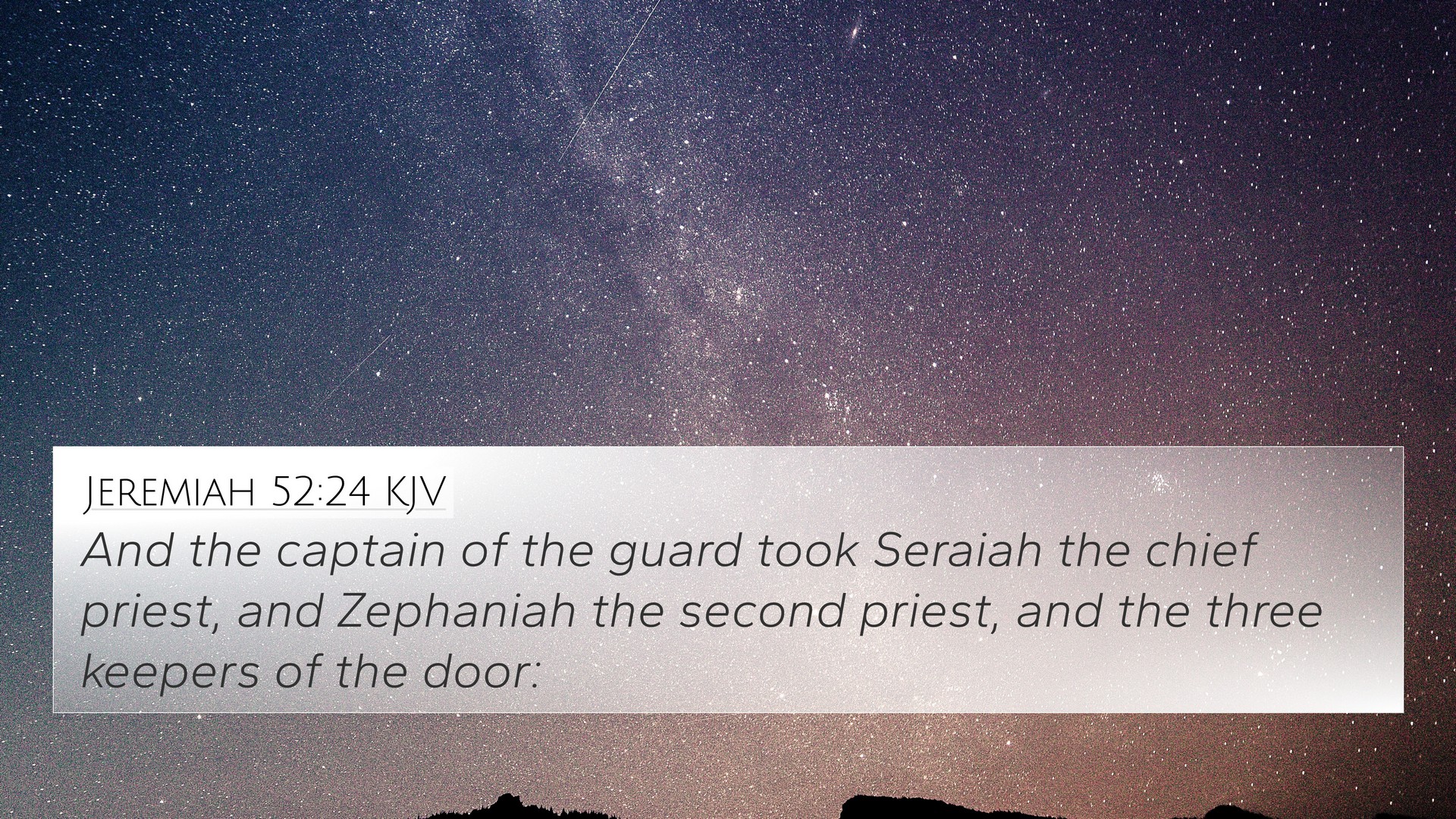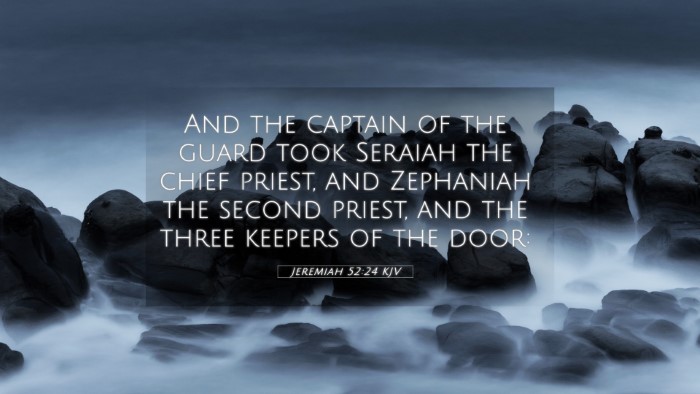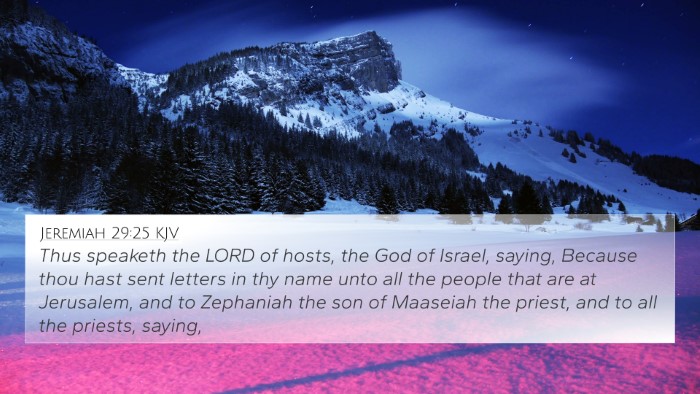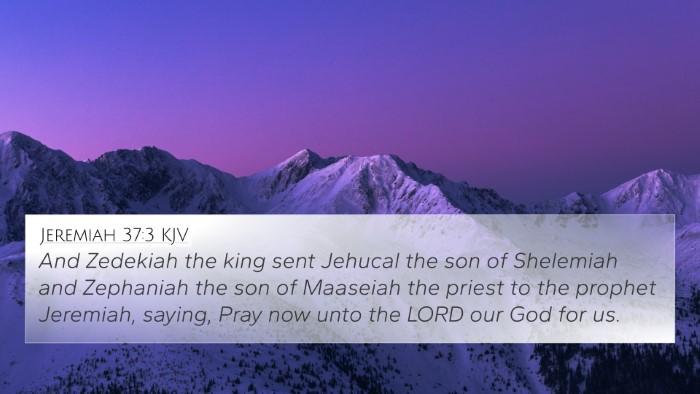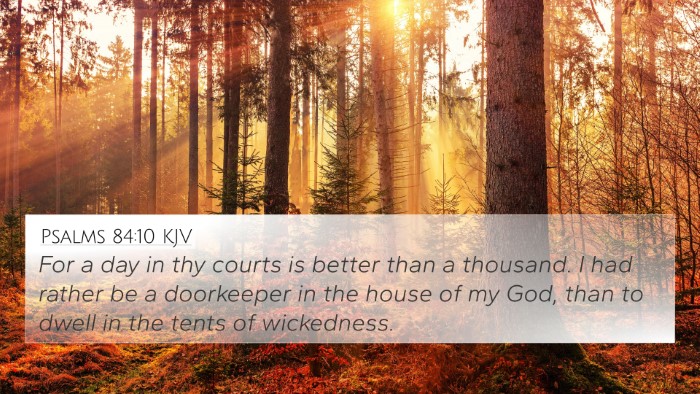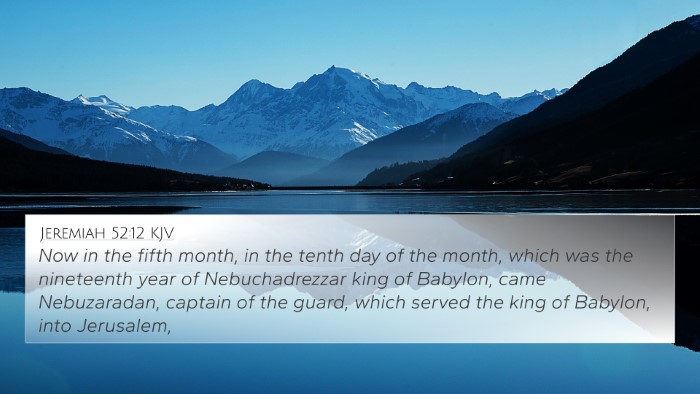Understanding Jeremiah 52:24
Verse Reference: Jeremiah 52:24
Text: "And the captain of the guard took Seraiah the chief priest, and Zephaniah the second priest, and the three keepers of the door:"
Summary of Jeremiah 52:24
This verse recounts the actions of the captain of the guard during the fall of Jerusalem, highlighting the capture of key religious leaders. It serves to illustrate the seriousness of the situation as Jerusalem faced its destruction and the remnant of Judah was taken into exile.
Combined Insights from Public Domain Commentaries
Matthew Henry's Commentary
Matthew Henry notes that the capture of Seraiah and others represents the stripping away of the religious leadership of Judah. This act symbolizes both the physical defeat of the people and the spiritual desolation that follows the abandonment of God’s commands. Henry emphasizes that the judgment upon Jerusalem is definitive and foreboding for the remnant.
Albert Barnes' Commentary
Albert Barnes elaborates on the roles of the captured priests, illustrating the importance of their positions within the nation. He comments on how their capture signifies the end of the priestly functions in a land that had rejected its covenant with God. This serves as an indication of the spiritual state of the people, reflective of a larger narrative of disobedience.
Adam Clarke's Commentary
Adam Clarke highlights the significance of maintaining proper worship and sanctity within the temple before the fall. He points out that the priests' capture is a direct consequence of Judah's failure to adhere to God’s standards. Clarke encourages the reader to understand this as a historical lesson on the implications of national sin and disobedience.
Bible Cross References Related to Jeremiah 52:24
- 2 Kings 25:18: Some parallels to the capture of priestly and leadership figures during the Babylonian siege.
- Jeremiah 39:9: Similar account of the aftermath of Jerusalem's fall and the exile of prominent leaders.
- Jeremiah 1:18: God's intention for Jeremiah to be a fortified city, representing the weight of spiritual leadership.
- Ezekiel 11:1-13: God's message concerning the leaders of Jerusalem, indicating the consequences of their actions.
- Leviticus 10:1-3: The seriousness of priestly duties and the respect that should be given to divine service.
- Zechariah 11:8: A reflection on the poor leadership and how it led to devastation.
- Micaiah 1:5: Prophetic warnings about the judgment of God on unfaithful leaders.
- Isaiah 3:12: Warnings regarding the fate of Israel's leaders and their impact on the people.
- Daniel 1:3-4: A look at noble young men being taken captive, similar to the fate of Seraiah.
- Matthew 23:34-39: New Testament reflections on the rejection of God’s messengers and the consequences of leadership failure.
Thematic Bible Verse Connections
The narrative surrounding Jeremiah 52:24 delves deep into themes of leadership, divine judgment, and the spiritual state of communities. Across various books, we see clear links between the actions of leaders and the outcomes of their nations, establishing a critical theme in both the Old and New Testaments.
Cross-Referencing Bible Study Methods
Studying Jeremiah 52:24 offers an opportunity to explore the broader narrative of the Old Testament. Tools such as a Bible concordance can help locate the cross-references listed above, assisting individuals seeking deeper understanding and contexts behind the scripture. Utilizing a Bible cross-reference guide can illuminate the connections between these verses and enhance one’s study.
Conclusion
Understanding Jeremiah 52:24 through the lens of various commentaries enriches the reader's perspective and emphasizes the pivotal role of spiritual leaders in a community’s fate. The cross-references serve not only as connections between scripture but as pathways to deeper doctrinal insights and reflective study.
